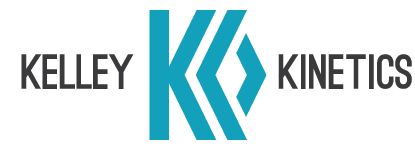Just like any relationship, a coach-athlete relationship is a two-way street. You train and train and train, follow your plan, and work to be a better athlete. However, you can also work to be an good client, thus having the best relationship you can with your coach, and get the most out of those efforts.
Here are some tips that will create a constructive relationship and help you get the most out of your plan:
1. Put In The Work
You’ve made the decision to work with a coach, so you’ve likely got some goals in mind that you’re working towards. It’s now your coach’s job is to provide you with a plan and guidance that is suitable to your needs, abilities, and lifestyle. One of the great benefits of working with a coach, versus downloading a plan, is that your training is totally optimized for you – whether that means working around a busy schedule or dealing with an injury. It’s already set up to be something that is both manageable and beneficial, and perfect for you. But it’s not a magic button, and it won’t work unless you put in the effort that’s required. Being diligent is step one to seeing the results, and achieving the goals that you are after.
2. Communicate. Honestly.

Your coach and you make a great team, because you have the ability, and she has the knowledge. She is working to put that knowledge to use in a specific way, to help achieve your goals. Good, honest, and constant feedback only help both of you see the big picture and make beneficial, and sometimes vital adjustments.
Being honest about how you did in a workout – even if it was your worst day – is an opportunity to uncover potentially bigger issues and address them (or get peace of mind that it was just the effect of a bad night’s sleep). Having honest communication will also help keep you accountable to your plan.
A good coach is proactive in creating a strong plan with a strong athlete, and will have the knowledge and input to improve these as you go. She will observe patterns that may identify over use injuries or burn out and adjust as needed to prevent these things from happening.
3. Have Faith
One of the best parts about working with a capable coach is not second-guessing yourself. Whether you formulated your own training plan or downloaded one, there is often a lot of “but is this right for me?” mental insecurities that arise. Having the faith that you’re doing the correct things, on the correct day, not only alleviates some of that stress, but also empowers you to put your full efforts into each workout, because you know you’re getting the most out of them. If you do have a “but why” moment, it’s a great time to bring it up with your coach. “Why is my goal pace where it is?” “How does this strength exercise benefit me?” These questions can educate you and relieve that insecurity, and give you the faith that you’re on track to meet your goals.
4. Ask All The Questions
Training for events such as marathons and triathlons are so much more than engaging in those activities. Existing health issues, potential injuries, the toll of your daily schedule, your own psychological drive are all factors in your results. Use your coach as your point-person for all of the things, training and beyond, that you think may affect your performance. Your coach may be an expert in some, if not all of these, and if not, can likely point you in the right direction. But still, you both need to be on the same page with this information. If you feel some aches and pains that concern you, ask about them. If you’re struggling with motivation, ask for support. If you need to rearrange your schedule, ask for an adjustment. Your coach is here to help balance all of these training factors, and you’ll be educating yourself in the meantime.
5. Learn Together
Coaches have extensive backgrounds in things from exercise physiology, to injury prevention, to nutrition, but only you know your own body best. Working with a coach to track things such as sleep, nutrition, stress, and fatigue can help uncover patterns in your lifestyle that have an effect on training. Learning together what to look for, and fine-tuning your training and race day plan can make all the difference in your results. Continuing to learn, communicate, and work proactively together will help foster an unending cycle of improvement, and help launch you to whatever goals you may have.
